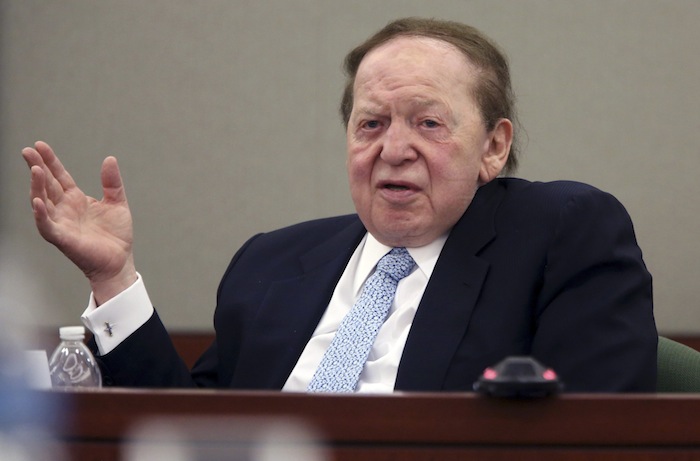As I awoke early this morning, I had a few priority things to attend to on my wagering agenda.
First, of course, was to evaluate the list of top sportsbooks to gain advantage of who I was going to bet among this weekend’s NFL playoff games. A must scanning through Bovada, WagerWeb, BetOnline and the rest of preferred books to see where I could begin plotting my handicapping edge.
Next on the list was a highly unusual task . . . remembering to buy Mega Millions and Powerball tickets.
As a student of the odds and a gambling expert, you would think this would be the unlikeliest choice to make. After all, the odds of hitting a Mega Millions jackpot are 1 in 302,575,350, while the odds of winning the Powerball jackpot is slightly better at 1 in 292,201,338. Right up there with me scoring with Taylor Swift on Saturday night. However, the Mega Millions jackpot has now jumped up to $750 million, with Powerball not far behind at $640M. Therefore, that makes it logistical sense, but the problem of motivation heading out the door to risk COVID-19 and the worry of spreading the coronavirus to others. Hmmm . . .
However, the Mega Millions jackpot has now jumped up to $750 million, with Powerball not far behind at $640M. Therefore, that makes it logistical sense, but the problem of motivation heading out the door to risk COVID-19 and the worry of spreading the coronavirus to others. Hmmm . . .
Staying Home to Avoid the Risk
In this buy everything online and wager online Internet-obsessed country we live in you would think it would be easily possible for me to purchase and print my lottery tickets online. Thereby, reducing that risk and keeping my dreams of instant wealth and comfy retirement alive. It is not.
Only ten U.S. states allow the potential to purchase lottery tickets online and I am not lucky enough to be residing within them. And within that list, only five allow the Mega Millions to be purchased.
It is a frustrating dilemma and one that seems peculiar since the greedy motivation of every U.S. state is to lure their population toward purchasing as many lottery tickets as possible to aid state funding. The question is why? Ironically, it likely is partly linked to the same motivating reason that drove an obsession of a very famous man that passed away this week.
The Legacy of Sheldon Adelson
Sheldon Adelson built the world's largest empire of casinos and resort hotels in Las Vegas, Macau, Singapore, and other gambling meccas and used his vast wealth to promote right-wing political agendas in America and Israel. He died on Monday at his home in Malibu, California at 87. Adelson spent a large amount of his fortune, pegged at $35 billion by Forbes to become an influential behind-the-scenes-player in Washington, working to shape American policy toward Israel, and help guide Republican Party strategy, including millions spent to back departing President Trump. He also used that political influence and fortune to lobby against threats posed to his personal business interests.
Adelson spent a large amount of his fortune, pegged at $35 billion by Forbes to become an influential behind-the-scenes-player in Washington, working to shape American policy toward Israel, and help guide Republican Party strategy, including millions spent to back departing President Trump. He also used that political influence and fortune to lobby against threats posed to his personal business interests.
Among those business threats at the top of the list were his passionate disdain for the legalization of online gambling in the United States. On his radar screen, armed with millions of dollars, were three federal laws including the 1961 Wire Act, PASPA (the Professional and Amateur Sports Protection Act of 1992) and UIGEA (the Unlawful Internet Gambling Enforcement Act of 2006).
Adelson fought in U.S. Federal courtrooms for several years with his "Coalition to Stop Internet Gambling" to keep U.S. online gaming and sports wagering illegal. His attorney's arguments were based in the backbone of each federal law's words involving luck vs. skill. Opportunities lost for not providing U.S. tax dollars. He also nobly championed the fight to protect citizens from the potential addictive problem and underage gambling online wagering might cause.
He was quoted in 2013 as saying:
"My moral standard compels me to speak out on this issue because I am the largest company by far in the industry and I am willing to speak out. I don't see any compelling reason for the government to allow people to gamble on the Internet and nobody has ever explained except for the two companies whose special interest is going to be served if there is gaming on the Internet, Caesars and MGM."
But like the same "reality" reason why I cannot purchase my Mega Millions and Powerball ticket this morning online, we can understand, though not potentially agree with Mr. Adelson’s true driving force motive. It did not allow a gambler the opportunity to come to his Las Vegas casinos IN-PERSON to wager, eat, purchase a room, etc., to directly drive ancillary revenue for his Las Vegas Sands Corporation hotels.
March 2020 Reality
Before Mr. Adelson’s passing it was reported that quite surprisingly the Sands Corporation was now pursuing the opportunity to venture into online gambling with an undisclosed partner. This was obviously due to COVID-19 especially crippling Las Vegas during 2020 and the state mandated restrictions that are likely to continue until at least mid-2021 or potentially longer.
Last Friday it was announced that Robert Goldstein, acting chief executive officer, is in the early stages of talks. Plans could involve using the Sands brands or the broader development of a betting platform by the company, according to sources who asked not to be identified because the discussions are private.
Today’s Reality
I am now risking the coronavirus, heading out the door to purchase my Mega Millions and Powerball tickets at the local supermarket. While I am there, I plan to buy things on my shopping list and quite likely to purchase a few spontaneous items I did not plan on, adding to the economy and to the retailer's bottom line. Items that I will not purchase online. The supermarket will receive a minor percentage from my lottery gambling (luck, not skill).
Here is hoping that my state will soon be able to offer the convenience of online lottery wagering. Putting my wildest dreams aside, I am more realistically hoping the Baltimore Ravens cover two and a half points on Saturday. Thankfully, I can still shop among the list of top online sportsbooks safely from my home to make that purchase.
Glenn Greene covers the games from a betting angle every week exclusively at OSGA.com. For weekly betting insights, including previews and picks from Glenn, click here.







































